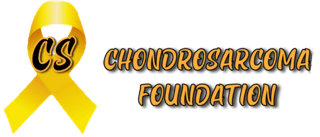Results of A Phase 1 Study on Ivosidenib for Patients with Advanced Chondrosarcoma
Phase I Study of the Mutant IDH1 Inhibitor Ivosidenib: Safety and Clinical Activity in Patients With Advanced Chondrosarcoma
William D. Tap, MD1,2; Victor M. Villalobos, MD, PhD3; Gregory M. Cote, MD, PhD4; Howard Burris, MD5; Filip Janku, MD, PhD6; Olivier Mir, MD, MPH, PhD7; Murali Beeram, MD8; Andrew J. Wagner, MD, PhD9; Liewen Jiang, PhD10; Bin Wu, PhD10; Sung Choe, PhD10; Katharine Yen, PhD10; Camelia Gliser, BS10; Bin Fan, PhD10; Sam Agresta, MD, MPH10; Shuchi S. Pandya, MD10; and Jonathan C. Trent, MD, PhD1
Jonathan Trent, M.D., Ph.D. is a world renown leader of the Sarcoma, Associate Director, Clinical Research, University of Miami, Sylvester Comprehensive Cancer Center, he currently runs a research lab and is conducting clinical trails on Chondrosarcoma. The Abstract of the Phase 1 Clinical Trial on the IDH1 inhibitor Ivosidenib is listed below.
For more information, the link to the article is:
https://ascopubs.org/doi/10.1200/JCO.19.02492?url_ver=Z39.88-2003&rfr_id=ori:rid:crossref.org&rfr_dat=cr_pub%20%200pubmed
PURPOSE
Surgery is the primary therapy for localized chondrosarcoma; for locally advanced and/or metastatic disease, no known effective systemic therapy exists. Mutations in the isocitrate dehydrogenase 1/2 (IDH1/2) enzymes occur in up to 65% of chondrosarcomas, resulting in accumulation of the oncometabolite D-2-hydroxyglutarate (2-HG). Ivosidenib (AG-120) is a selective inhibitor of mutant IDH1 approved in the United States for specific cases of acute myeloid leukemia. We report outcomes of patients with advanced chondrosarcoma in an ongoing study exploring ivosidenib treatment. PATIENTS AND METHODS
This phase I multicenter open-label dose-escalation and expansion study of ivosidenib monotherapy enrolled patients with mutant IDH1 advanced solid tumors, including chondrosarcoma. Ivosidenib was administered orally (100 mg twice daily to 1,200 mg once daily) in continuous 28-day cycles. Responses were assessed every other cycle using RECIST (version 1.1). RESULTS
Twenty-one patients (escalation, n = 12; expansion, n = 9) with advanced chondrosarcoma received ivosidenib (women, n = 8; median age, 55 years; range, 30-88 years; 11 had received prior systemic therapy). Treatment-emergent adverse events (AEs) were mostly grade 1 or 2. Twelve patients experienced grade ≥ 3 AEs; only one event was judged treatment related (hypophosphatemia, n = 1). Plasma 2-HG levels decreased substantially in all patients (range, 14%-94.2%), to levels seen in healthy individuals. Median progression-free survival (PFS) was 5.6 months (95% CI, 1.9 to 7.4 months); the PFS rate at 6 months was 39.5%. Eleven (52%) of 21 patients experienced stable disease.
CONCLUSION
In patients with chondrosarcoma, ivosidenib showed minimal toxicity, substantial 2-HG reduction, and durable disease control. Future studies of ivosidenib monotherapy or rational combination approaches should be considered in patients with advanced mutant IDH1 chondrosarcoma.
